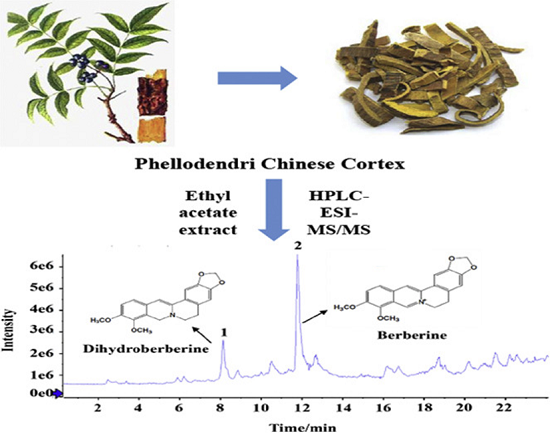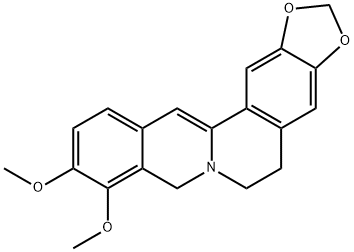Is dihydroberberine better than Berberine?
Description
Dihydroberberine (DHB) is an isoquinoline alkaloid derived from Berberine (BBR). There is no evidence that DHBBR is consumed directly or as a component of herbal products in foods, dietary supplements, or traditional medicines. BBR is found in the roots, rhizomes, and bark of various plants, including barberry, goldthread, goldenseal, and tree turmeric and is widely consumed as a bioactive component in Ayurvedic and Traditional Chinese medicinal herbs such as Berberis, Huang Po (Phellodendron amurense), and Huang Lien (Coptis chinensis and Rhizoma coptidis). It has been used as an immune modulator and treatment for central nervous system, cardiovascular, gastrointestinal, endocrine and renal problems. BBR has been evaluated for potential antineoplastic, radio-sensitizing, anti-inflammatory, anti-lipidemic, and hypoglycemic activities.
DHB, in particular, has been extensively studied for its ability to enhance the body's response to insulin, a critical hormone that regulates blood sugar levels. Insulin facilitates glucose uptake from the bloodstream into cells, providing them with essential energy. In healthy individuals, this process helps maintain blood glucose levels within a narrow range. However, in conditions like insulin resistance and type 2 diabetes, cells fail to respond adequately to insulin, leading to elevated blood sugar levels, which, if left unchecked, can result in various health complications.
Berberine and DHB have been found to improve insulin sensitivity, meaning they help restore the cells' responsiveness to insulin. This effect is particularly beneficial for individuals experiencing insulin resistance, as it can help lower high blood sugar levels and reduce the risk of diabetes-related complications.
Berberine and Dihydroberberine

The conversion of Berberine into Dihydroberberine (DHB) offers several significant benefits that enhance its therapeutic potential. Furthermore, transforming Berberine into DHB makes the compound safer and more tolerable for individuals. Berberine, in its original form, can sometimes cause gastrointestinal discomfort, including cramping, diarrhea, and constipation. In contrast, DHB is designed to be gentler on the digestive system, reducing these side effects and making it more suitable for long-term use.
Lastly, the most crucial benefit of this conversion is the significant increase in bioavailability. Bioavailability refers to how well a substance is absorbed and utilized by the body. While Berberine has relatively low bioavailability, meaning that only a tiny fraction of the ingested compound is absorbed into the bloodstream, DHB has been shown to have much higher bioavailability.
Berberine and DHB are recognized for their anti-aging properties and for their significant impact on metabolic health, mainly glucose and lipid metabolism. These compounds have shown promising results in improving the body's metabolic functions, with one of the most notable benefits being regulating blood glucose levels.
References
[1] Kara D. Lewis, Michael Falk. “Toxicological assessment of dihydroberberine.” Food and Chemical Toxicology 168 (2022): Article 113301.
[2] Healthspan Research Review | Dihydroberberine: A Promising Agent in Metabolic Regulation and Cellular Senescence Reduction
[3] Lihua Tan . “Dihydroberberine, a hydrogenated derivative of berberine firstly identified in Phellodendri Chinese Cortex, exerts anti-inflammatory effect via dual modulation of NF-κB and MAPK signaling pathways.” International immunopharmacology 75 (2019): Article 105802.
You may like
See also
Lastest Price from dihydroberberine manufacturers

US $1.00-2.10/KG2025-08-29
- CAS:
- 483-15-8
- Min. Order:
- 1KG
- Purity:
- 99%
- Supply Ability:
- 20000KG

US $600.00-400.00/KG2025-04-21
- CAS:
- 483-15-8
- Min. Order:
- 1KG
- Purity:
- 98%
- Supply Ability:
- Ex:10T


